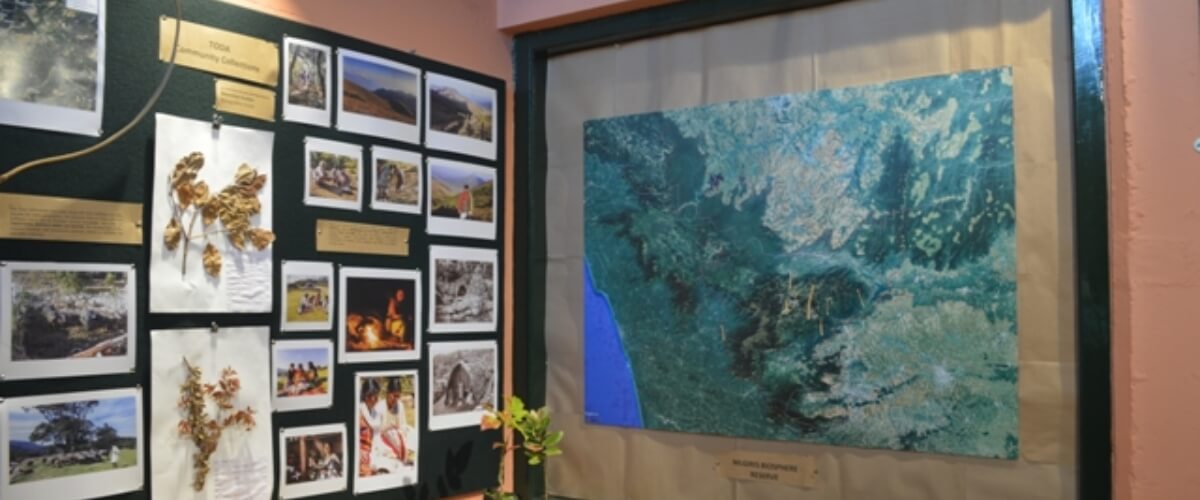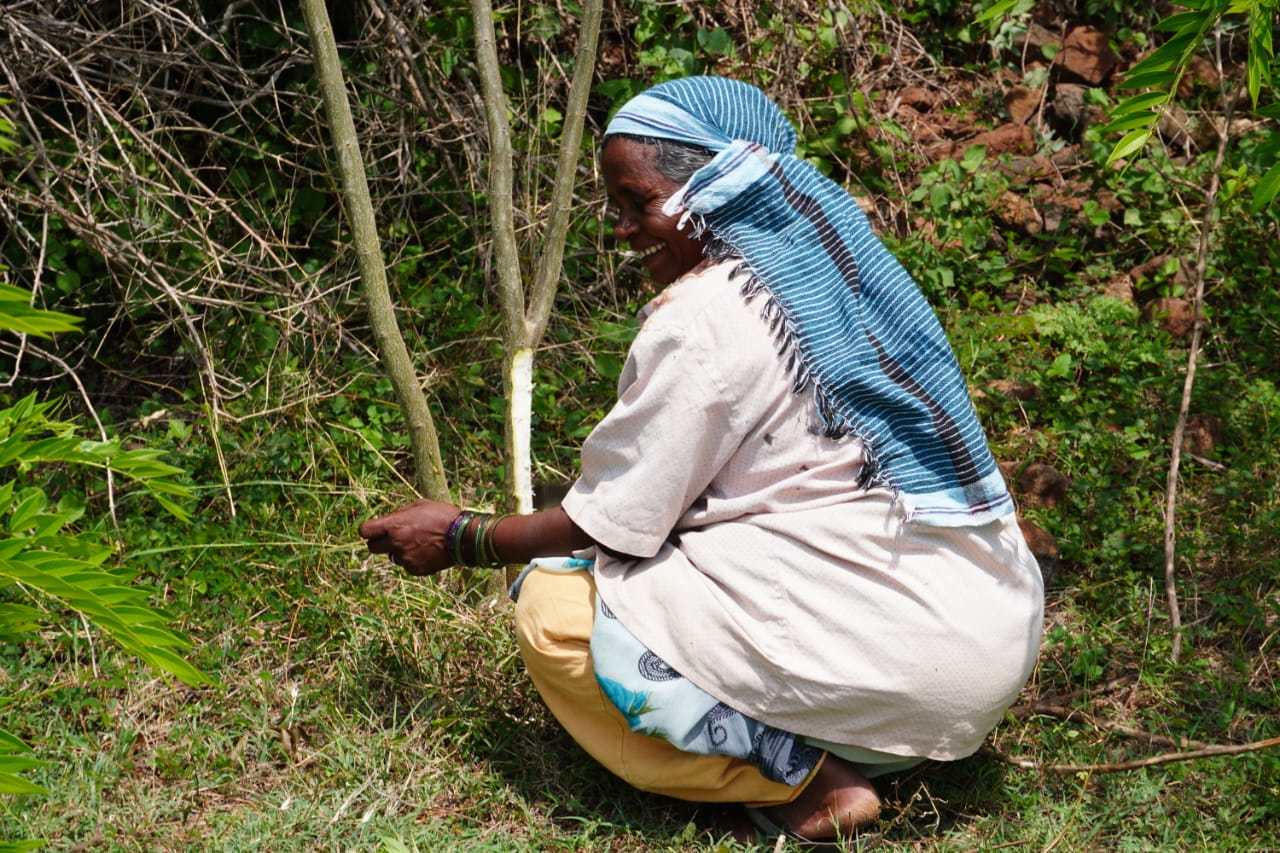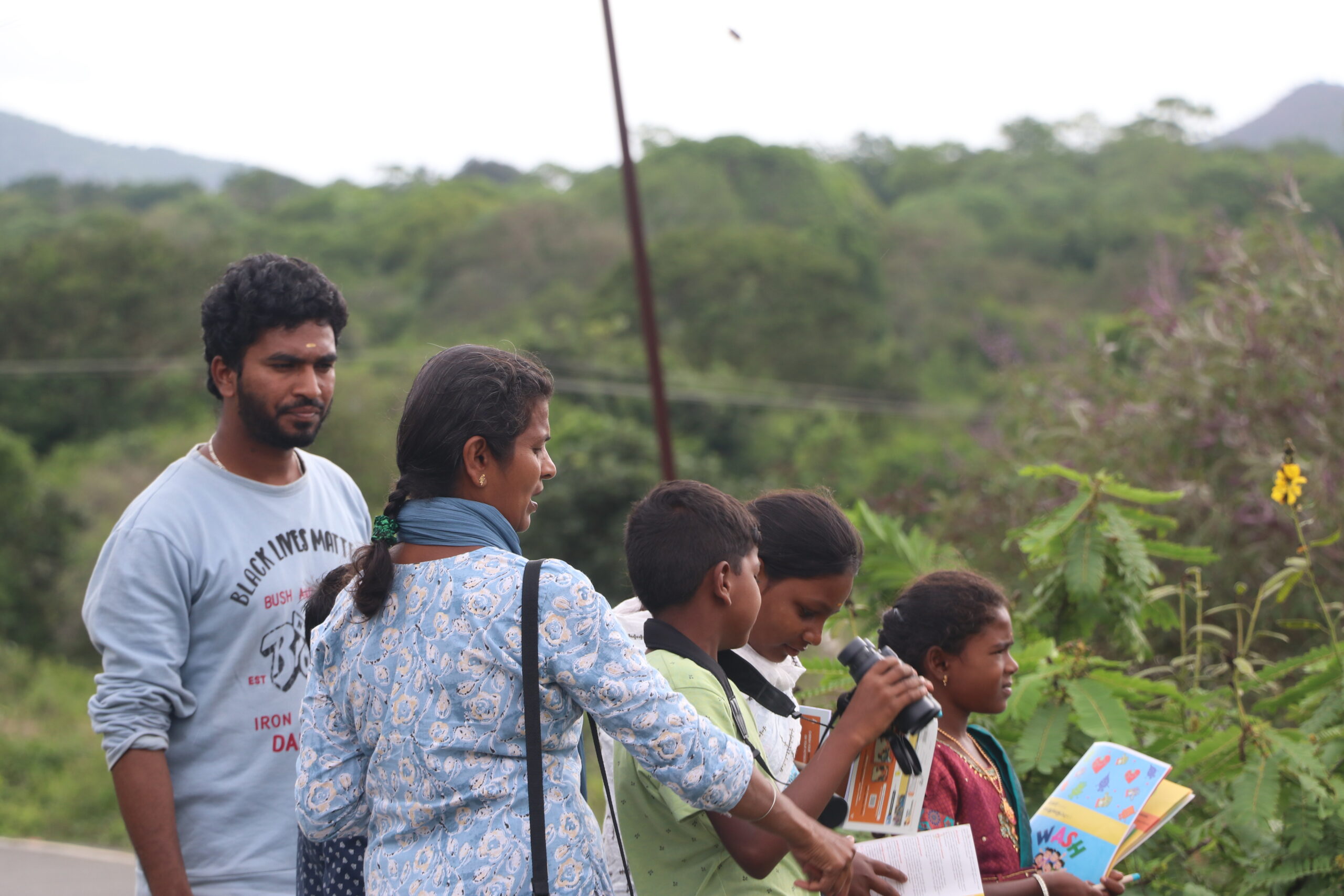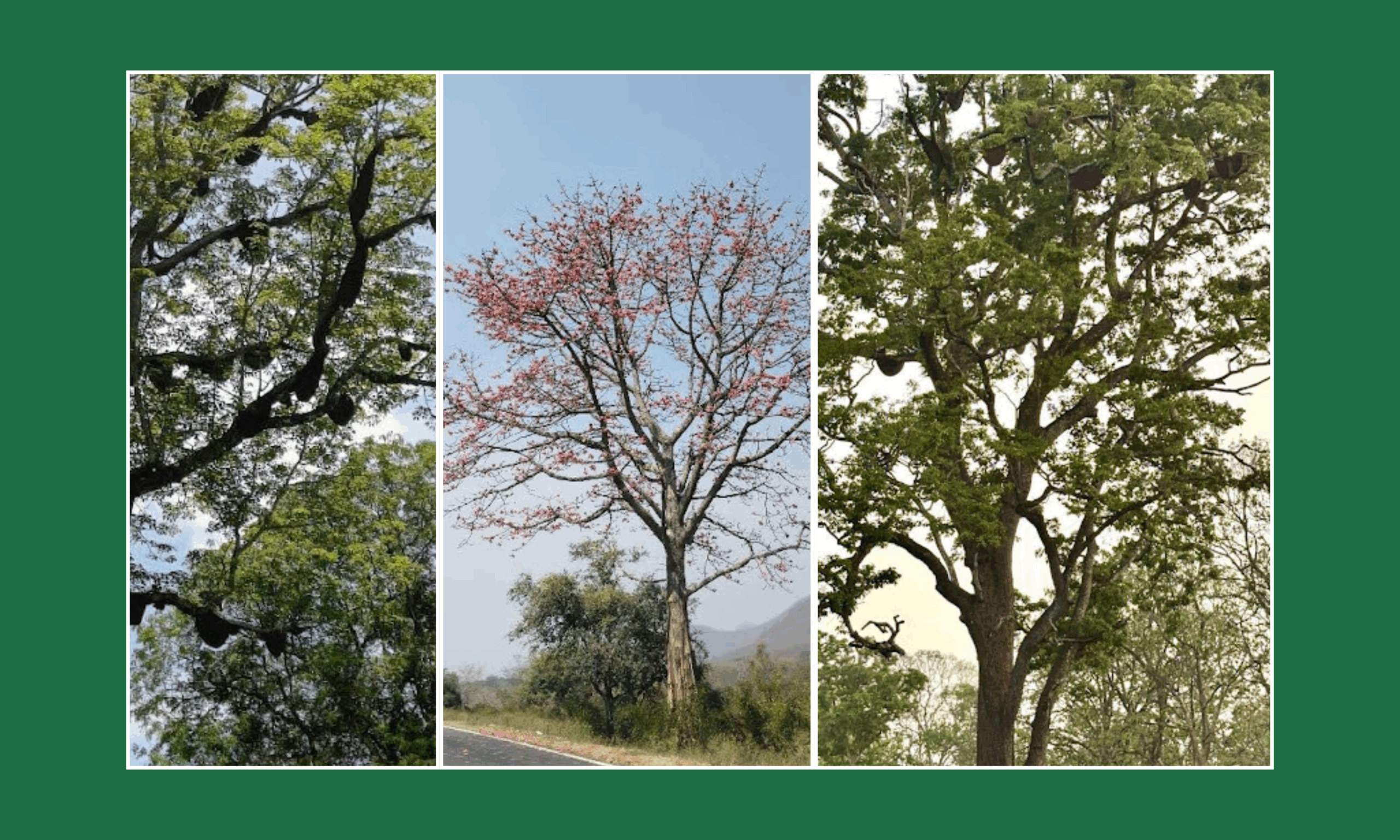The People and Nature Centre has been incubated at Keystone Foundation over the last 2+ years as a resource centre and learning space for knowledge related to the Nilgiris Biosphere Reserve. This November, Keystone’s birthday celebrations were marked by the opening of a PNC exhibitions room in the current Srishti building (The first building on campus) a beta run of the digital repository and archives and an internal opening of the different components of the centre.
Reverend Mulley, noted expert on Nilgiriology and trustee of Keystone Foundation inaugurated the exhibitions room and evoked the need for going back to the true idea of history coming from the Greek word historia, meaning: to inquire, to converse. He opened the space with conversations on local cultures and knowledge preserved in deep oral and conversational cultures in the Nilgiris, which can be best carried on with historical research, an inquiry was taken up by youth from the community. He urged the community members present to inculcate and take up more conversations, narratives and writings based on indigenous insider perspectives.
What will you Find in the Archives room?
A Nilgiris section of the library has been created and attached to an exhibition area of the several artefacts, seed displays, art, craft, music and livelihood associated material cultures from the Nilgiri Biosphere Reserve, that Keystone Foundation has collected over the years.
Porivarai, the Community Foundations group from Aracode, brought a lot of crafts and musical instruments for showcasing their work and ideas to the larger group.
The fellowships work ongoing at the PNC over the last 2+ years have been building towards audio-visual collections on Toda (Bikkapthy Mund) and Irula (Aracode) cultures. Discussions upon ongoing work presented by Monthis, Sivanandan, Savitri, Balu, Sivaranjani (Porivarai) took place between all teams from Last Forest, Aadhimalai and Keystone Foundation.
The Keystone institutional collections have been made accessible through a content management system and divided under different thematic collections that different working groups within Keystone will be able to access. The digital repository and archives will be accessible only on-site currently, but will be open to contributions and viewing from staff, researchers, as well as to the different Nilgiri folk.
By PNC team


















